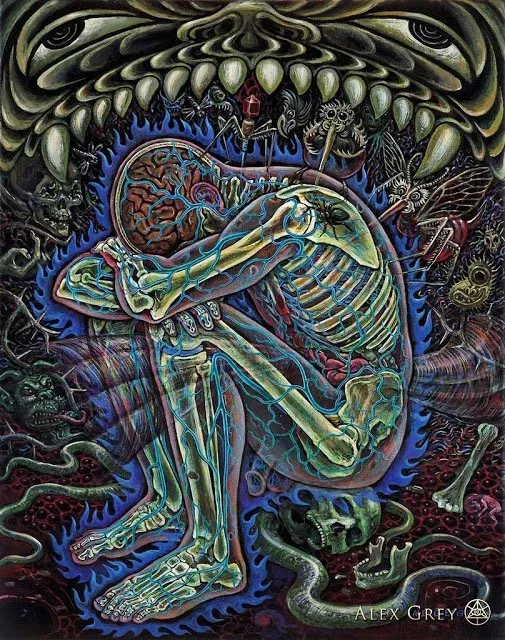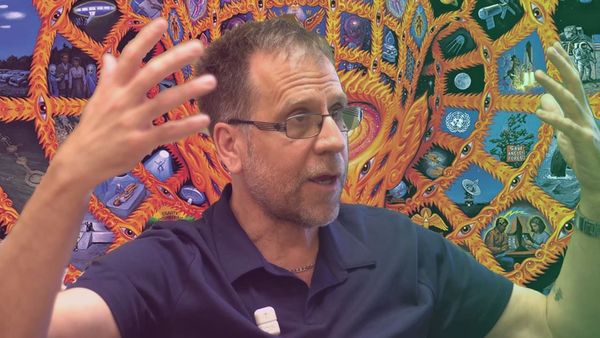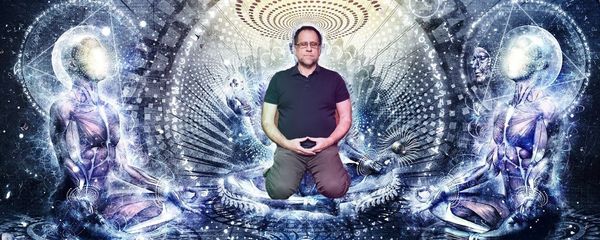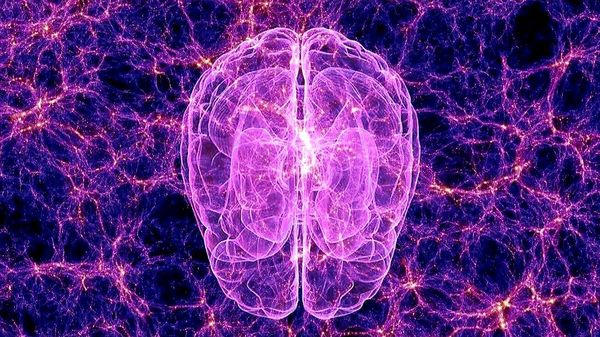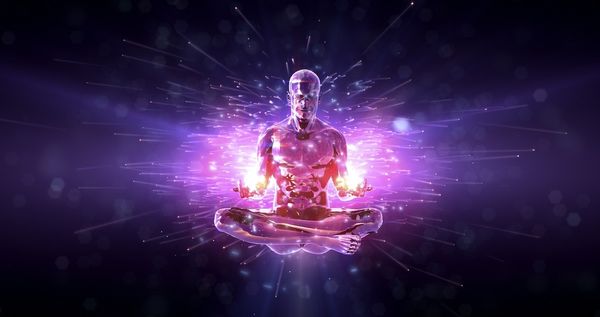Jack E Othon • • 26 min read
Am I a Bad Person? Navigating an Encounter with Your Shadow Self

Have you asked yourself the question?
You know the one I mean.
Maybe you said or did something out of character. Maybe you couldn’t even explain it to yourself. Maybe someone got hurt. Maybe you were hurt. Perhaps you were afraid of what you saw in you.
And then, before you could even begin to make sense of what happened, there it was. The Question.
Am I a bad person?
Rings a bell, doesn’t it? No, no — don’t feel bad. You’re not alone in your self-questioning. But let’s look at how you responded to the question.
Did you quickly dismiss the thought, afraid to find the answer? Or perhaps the question sent you spiraling down the rabbit hole of self-doubt?
No matter your immediate response, the question certainly must have shaken you to your core. You couldn’t unsee what you saw, and no matter how much you tried to push the question from your mind, the aftertaste of it lingered, tainting your perception of yourself.
The truth is, almost everyone wants to think of themselves as a good person, a moral person, a person who always puts their best foot forward and lives in the world with integrity.
But there is another universal truth that is much harder to digest: everyone — no matter how well-intentioned and pure of heart — has a dark side.
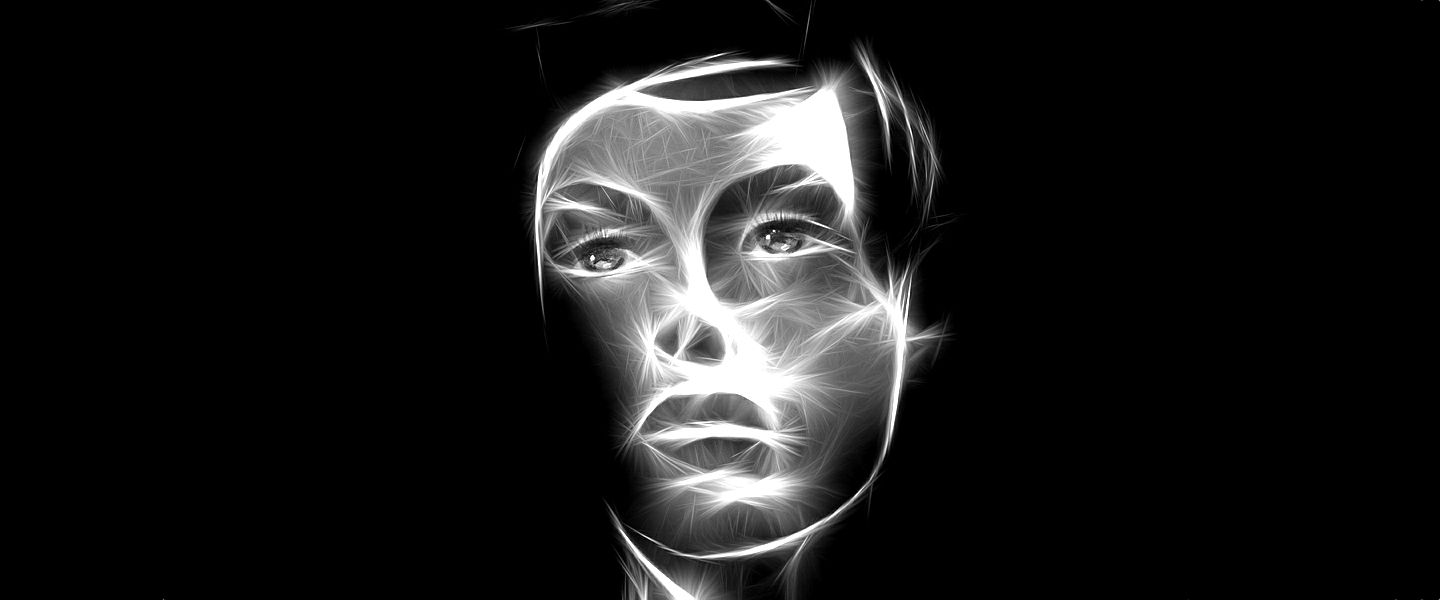
Meet Your Shadow Self
The “shadow” is a term coined by Swiss psychiatrist Carl Jung to describe those aspects of our personalities that we reject and repress. By society’s standards, we all embody traits that are “unhealthy,” “inappropriate,” or “unacceptable.” Maybe we’re jealous. Maybe we’re harshly judgmental. Maybe we backstab others to get ahead.
But the problem is, these kinds of thoughts and behaviors don’t jive well with our images of who we are. After all, we like to see ourselves as good people, right?
So, the mind ignores those aspects of ourselves. We don’t own our shadow. We repress it, we justify it, we excuse it, we call it something else.
“The persona is the mask we wear in relation to the world and others. It is created through a combination of socialization, societal expectations, one’s experience of the world, and the natural attributes and tendencies of the individual. It combines elements of how we want to see ourselves, ideally, and how we want the world to see us, as well as how the world does see us and wants us to be. Our persona defines our social identity; it is constructed in relation to the roles we play in our lives and in our world, how we want to look and be seen. It is the face we wear to be presentable and acceptable to our society. It is not necessarily who we really are, but who we want and pretend to be to others and, many times, to ourselves.”
— David Schoen, War of the Gods in Addiction
However, — and yes, this will be on the test — we cannot heal what we refuse to acknowledge.
“The shadow is a moral problem that challenges the whole ego-personality, for no one can become conscious of the shadow without considerable moral effort. To become conscious of it involves recognizing the dark aspects of the personality as present and real. This act is the essential condition for any kind of self-knowledge.”
— Carl Jung, Aion (1951). CW 9, Part II: P.14
According to Jung, true self-knowledge is the only path to wholeness. The key to taming the shadow is not to ignore or deny it, but to accept and integrate it.
“One does not become enlightened by imagining figures of light, but by making the darkness conscious.”
— Carl Jung
This is why The Question is so important to our self-development. If we do not have the courage to confront ourselves, how can we ever hope to be the best version of us that we can be?
You might be thinking, “Sure, sure, that all sounds great — but how do I begin to do this shadow work?”
Well, first, you have to know what to look for.
Mapping the Shadow
Before you can begin to work with your shadow, you need to know where to find it. Remember, your shadow aspects are those that you have buried deep in your unconscious mind, so you’ll need to create a psychological treasure map of sorts to dig them up.
Your shadow is a very tricky thing, and it’s had years to learn how best to hide from you. However, the shadow doesn’t hide to vex you, but rather, to protect you.
Each shadow thought or behavior surrounds a core of pain within you. All of your traumas — fears, humiliations, moments of rejection or abandonment, etc. — form tiny planets buried beneath layers of reactionary behaviors.
Just as the Earth’s atmosphere shields us from the sun’s rays and prevents our oxygen from escaping out into space, our shadows shield our traumas from outer triggers and prevent them from seeping into our conscious awareness, which would keep us in a state of constant suffering.
The sum of these repressed “planets” is the shadow — an entire universe within us that we have yet to explore. But just as space is perfectly dark, so, too, is our unconscious mind — blind spots in our personalities form obstacles between us and true self-knowledge.
Luckily, we can identify symptoms of the shadow to find its boundaries, enabling us to shine the light of our conscious awareness into this vast unknown territory.
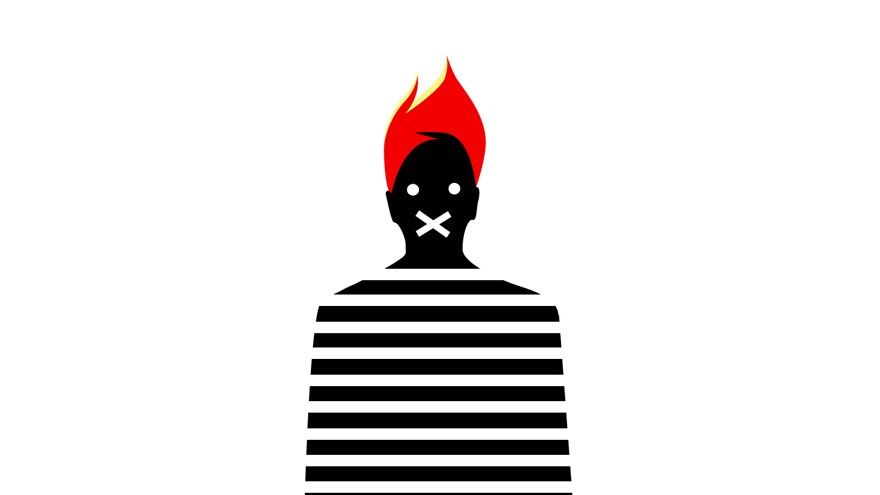
Shadow Symptoms
Every once in a while, you may find yourself reacting strongly to people or situations in ways that you don’t understand. When this happens, you are likely being “triggered” on an unconscious level. The adverse emotions that come up are a sign that your shadow is being awakened in response to an old trauma that was reactivated — an old wound that was reopened, perhaps without us even knowing what has happened. Here are some signs that you are facing an encounter with your shadow.
Irrational anger or quick temperedness. One of the most common indications that your shadow is being triggered is when you get very angry very quickly. You might snap at others or lash out physically before you have even had a chance to think rationally about the situation. You might later realize that your anger or actions were unjustified, yet you still can’t shake the feeling of anger despite your reasoning.
Guilt. Ah, guilt — the bane of the Western psyche. Guilt is a complex emotion to unpack, and the process is made so much more difficult by its prevalence in Western culture. So often we feel guilty about things we shouldn’t feel guilty about, while we ignore the guilt that we should feel when we wrong others. Whatever the case, guilt is a strong indicator that something is going on beneath the surface.
Fear or anxiety. At its heart, the shadow contains all of our survival instincts. When we feel threatened, the shadow rears its head, ready to jump to our defense. Feelings of fear or anxiety are most common at the forefront of a shadow experience, so when they pop up, it’s time to do some introspection.
Dark thoughts. Have you ever had a strong desire to punch someone in the face? Or maybe you’ve imagined horrible things happening to someone who has wronged you. Perhaps you’ve awakened from violent, fucked up dreams, or shaken yourself out of a daydream where you were imagining disturbing scenarios. The truth is that we all have dark thoughts on occasion, and their presence in our mind is a sign that our shadows are alive and well.
Impulsive behaviors. If you’ve ever grabbed something unnecessary in the checkout line, blurted your thoughts without filter, or randomly “missed” the interstate exit that would take you to the job you hate, then you are no stranger to impulsive behaviors. I realize that last example was a bit overly specific, but … don’t mind that. The point is, acting or speaking on impulse means that your shadow has jumped up and taken the wheel for a bit.
Unjustifiable hatred. As refined, modern, woke people, we’re not supposed to hate anyone or anything. But just between you and me … there’s always that one person we absolutely cannot stand. Everything about them sets us off, and we probably don’t even know why. They’ve never done anything wrong to us, really, but there’s just something about them that fucking grinds our gears. Well, ready for the plot twist? That’s your shadow right there, darling.
Avoidance. This one is perhaps the trickiest, because we can be so good at avoiding people and things that make us uncomfortable that we don’t even realize we’re doing it. It becomes second nature to change the subject, or flip the channel, or avoid eye contact, or drive a different route to avoid confronting something we don’t want to. Whether we avoid songs or places because of the memories they hold, or avoid people or topics of conversation because they challenge us, avoidance means a confrontation with the shadow is inevitable.
Perpetual negativity. We all know that one person who never seems to have anything positive to say. They’re always having a bad day, always trash talking others, always pessimistic about the future. Maybe the negativity is disguised as hip cynicism, or bold irony, or too-cool aloofness, but the underlying cause is the same. And maybe that person actually resides somewhere in our own minds. So, when everyone and everything else seems to suck, that’s a sign that it is what’s going on inside that sucks. Er — well, we’ll say, “is unresolved on a psychological level.”
Obsessive behavior. Are you one of those people who really needs things done a particular way? Or maybe you get fixated on the way others pronounce certain words. Are you a backseat driver? Do you micromanage others? Are you that person who always has to know what everyone else is up to at all times? Do you go full stalker mode when you have a crush on someone? All of these impulses boil down to one obsessive need: the need to control. And obsession is the realm of the shadow.
“Closer examination of the dark characteristics – that is, the inferiorities constituting the shadow – reveals that they have an emotional nature, a kind of autonomy, and accordingly an obsessive or, better, possessive quality.”
— Carl Jung
Self-destructive behavior. Although self-destructive behavior can be apparent when it comes in the form of substance abuse, dangerous risk-taking, or outwardly turbulent behavior, this shadow drive has its more subtle side, as well. Negative self-talk, self-sabotage, defensiveness that kills all relationships and prevents true intimacy — these behaviors are also self-destructive. And all destruction, both inner and outer, is the work of the shadow.
Strong adverse reactions to criticism. No one really likes to be criticized. It is perfectly natural to get upset when you do encounter criticism, since we all have egos and none of them like to be challenged. However, if you find yourself reacting strongly to criticism, i.e., getting fiercely defensive, snapping or shouting, diverting the conversation, or reversing the criticism in a counter-attack, chances are your shadow just got stepped on.
The human shadow is a vast and complex phenomenon, and it expresses itself in countless ways. However, these are amongst the most common symptoms that will arise when you do face an encounter with your own shadow.
So, now that we’ve affirmed that we all have shadows and identified where our own resides in us, let’s take another look at the big question.
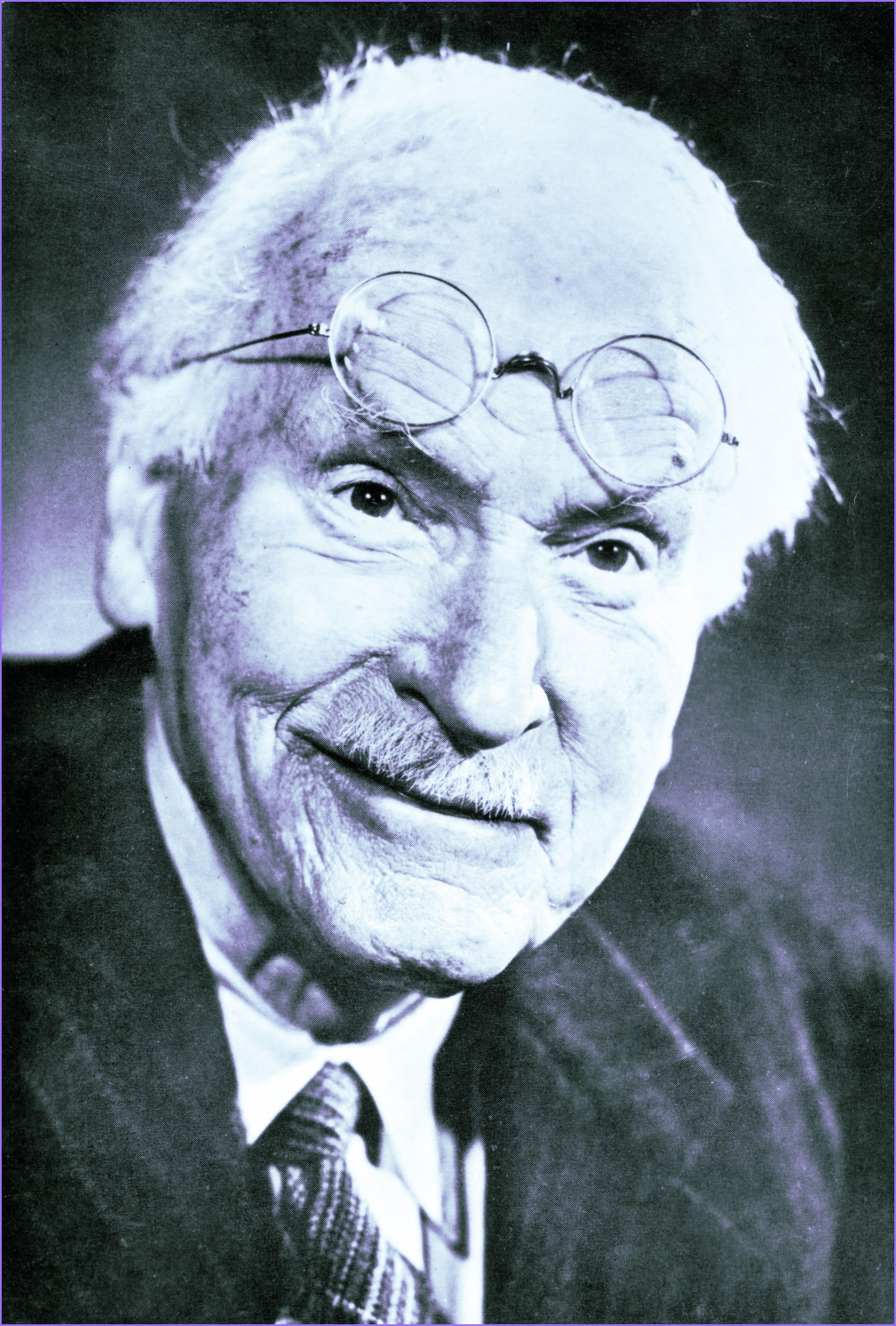
Am I A Bad Person?
So, truthfully, I cannot answer this question for you. It is a conversation that needs to happen between you and your own soul. Society provides a template for what a “good person” looks like — what a good person does, what a good person says, things that a good person would never do, say, or think.
Perhaps a more accurate starting point would be to ask ourselves the following: can you be a good person and still have a dark side? If you strive to treat others with compassion and integrity, and live your life to the best of your abilities, does the existence of your dark side negate all that and make you a bad person?
No. It simply makes you human.
Perhaps the problem stems from the fact that we dehumanize the human dark side. We look at people whose dark overshadows their light — the murderers, the rapists, the terrorists, the agitators — and we call them monsters. It is easier to label them and simplify the problem than to look at each individual life, to address the cultural problem of how we deal with mental illness, to trace the line of suffering in a family, to look at the cultural and societal factors that contribute to that suffering. To properly address these issues would take a massive shift on a cultural level, one that no individual could initiate on one’s own.
So, it’s easier to push the problem aside, to banish it to our prisons and our psychiatric wards, to let darkness be the realm of the “other” — not the realm of every human mind.
“All those qualities, capacities and tendencies which do not harmonize with the collective values – everything that shuns the light of public opinion, in fact – now come together to form the shadow, that dark region of the personality which is unknown and unrecognized by the ego. The endless series of shadow and doppelgänger figures in mythology, fairy tales and literature ranges from Cain and Edom, by way of Judas and Hagen, to Stevenson’s Mr. Hyde in the ugliest man of Nietzsche; again and again such figures have appeared and made their bow before human consciousness, but the psychological meaning of this archetype of the adversary has not yet dawned upon mankind.”
— Erich Neumann, Depth Psychology and a New Ethic
Now, back to our question. I can’t tell you how many times I’ve asked this of myself, or how many times I’ve talked a loved one through the same question. We look around and perceive the people around us to be so certain, so at peace in their own minds with who they are that we fail to realize we are all asking ourselves the same thing.
Let’s ask the question another way. This is a vast oversimplification of a complex moral problem, so it will prove problematic in some regards. But, by breaking it into an easier question, we’ll improve our chances of finding a truer answer.
Are you hurting people (or animals) on purpose? Or, is the suffering you cause merely a byproduct of your own pain, of your own defensiveness, of your own shadow at work in the world? Do you gain satisfaction from creating suffering in others, or do you strive to avoid causing pain, and work to rectify the situation when you do hurt others?
Of course, we can say that people who hurt people on purpose are also hurt. This is why this line of questioning is problematic. And then there are those who fall in the murky gray area of human nature — those who will be casually cruel to people in the service industry, exploit their position of power over their subordinates at work, humiliate their peers in front of others, etc.
But we will call conscious intention our baseline, because people who are awake to their own compassion and empathy will do whatever they can to avoid inflicting pain on others.
It is a frightening thought that man also has a shadow side to him, consisting not just of little weaknesses- and foibles, but of a positively demonic dynamism. The individual seldom knows anything of this; to him, as an individual, it is incredible that he should ever in any circumstances go beyond himself. But let these harmless creatures form a mass, and there emerges a raging monster; and each individual is only one tiny cell in the monster’s body, so that for better or worse he must accompany it on its bloody rampages and even assist it to the utmost. Having a dark suspicion of these grim possibilities, man turns a blind eye to the shadow-side of human nature. Blindly he strives against the salutary dogma of original sin, which is yet so prodigiously true. Yes, he even hesitates to admit the conflict of which he is so painfully aware.
— Carl Jung, “On the Psychology of the Unconscious”
Now, the extent to which we are conscious of our intentions plays a big role in how we answer this question for ourselves. Looking back at the behaviors of the casually cruel, we have to ask ourselves, “Did this person wake up this morning and say to themselves, ‘I’m going to go ruin a barista’s day today’? Or, ‘I’m going to go create years’ worth of trauma for my coworker by making fun of them with my friends in the break room’?” Because the answer to this question is most commonly, “No. They don’t consciously intend to hurt others. They simply find ways to feed the needs of their own ego, to make themselves feel powerful in an attempt to counteract previous feelings of powerlessness in their own lives, and then they give it no further thought beyond what it takes to satisfy that unconscious need.”
Does that make the behavior alright? Fuck, no — and I have years of baggage from working in customer service to back that up. But does it help us understand others? Does it help us understand ourselves? Absolutely. And that’s how we begin to answer the question for ourselves — by observing our behavior, by tracing our intentions, and by confronting the truth of what and how we need to change to be better versions of ourselves.

Reading the Shadow Map
We have already created a map of the shadow by defining its boundaries with shadow symptoms — but a map is only useful if it actually gets us somewhere. If we’re going to work with our shadows, we have to understand them, so let’s revisit the symptoms by looking at their sources in our psyches.
Irrational anger or quick temperedness. Boiled down to its bare bones, the shadow holds our survival instincts — instincts that have been hard-wired into our DNA for countless millennia. Irrational anger and quick temperedness mean that our brain has switched over into fight-or-flight mode, and that, in this case, we have (obviously) chosen to fight. Bottom line: for whatever reason, something about the situation at hand has made us feel threatened in some way.
“The change of character brought about by the uprush of collective forces is amazing. A gentle and reasonable being can be transformed into a maniac or a savage beast. One is always inclined to lay the blame on external circumstances, but nothing could explode in us if it had not been there. As a matter of fact, we are constantly living on the edge of a volcano, and there is, so far as we know, no way of protecting ourselves from a possible outburst that will destroy everybody within reach. It is certainly a good thing to preach reason and common sense, but what if you have a lunatic asylum for an audience or a crowd in a collective frenzy? There is not much difference between them because the madman and the mob are both moved by impersonal, overwhelming forces.”
— Carl Jung, Psychology and Religion
Guilt. Guilt can go one of two ways. Either we are guilty because we find ourselves in violation of society’s accepted norms (i.e., we like/desire/think/feel something that society has deemed unacceptable), or we are guilty because we know we are wrong/unjustified/causing another person pain.
Fear or anxiety. Again, this comes down to our survival instincts. When faced with fight-or-flight mode, in the case of fear and anxiety, we have opted for flight. The brain’s goal is to keep us safe, to keep us alive — and we don’t always stop to think, “Hey, a room full of strangers isn’t going to kill me. Social discomfort isn’t going to kill me. Thanks for the warning, brain, but I’ll take it from here.” When the shadow is in control, it perceives a threat and does whatever it needs to protect us from that perceived threat.
Dark thoughts. Westerners live in a sanitized world. We don’t encounter death and violence and destruction in our everyday lives, but we know all those things exist. Our media and entertainment are saturated with this part of our reality, but how often do we confront death in our own lives? How often do we confront the violence inherent in human nature, or in ourselves? Not often enough. So, the shadow reminds us of these things when it can, which is usually when we’ve dropped our guard and drifted into sleeping dreams or waking fantasies. And this is the essential message of the shadow and the unconscious mind: nothing that is buried stays buried forever.
Impulsive behaviors. Just as the shadow helps us process things we don’t confront often in our conscious lives, it also helps us meet needs that we don’t know how to meet consciously. If we blurt something out on impulse, it means we really needed to say it, but didn’t know how (although taking the time to figure it out could save us and others a lot of trouble). If we do something impulsively, it shows that we have an unmet need or desire and need to work to find a way to fulfill ourselves in healthier and/or more conscious/intentional ways. Not to say that all impulsive behavior is bad — it can be exciting, it can bring variety and novelty. It is simply a sign for us to analyze to bring us to a better understanding of ourselves.
Unjustifiable hatred. Once more we are brought back to the survival instinct. When we hate someone or something, it is because we feel threatened. Maybe we hate someone who’s “perfect,” and their perfection makes us feel inadequate, which makes us feel insecure, which is a threat. Maybe we hate someone because they remind us of everything we don’t want to be — everything we are afraid we might be. And there is another great lesson of the shadow: everyone we encounter is a mirror, reflecting us back to ourselves.
Avoidance. Is there an echo in here? Avoidance is a survival mechanism. We avoid people, places, and things that bring up painful memories because we are protecting ourselves from pain. We avoid people and situations that challenge us because we don’t like feeling insecure. Everything we avoid has its root somewhere in our psyche — traumas we experienced when we were young, heartaches we endured as we grew older, losses and failures and humiliations at all stages of life. The problem is, when we avoid things, we may be avoiding the pain they bring in the short-term, but we do so at the expense of learning from our experiences, of healing our wounds, and growing as individuals.
Perpetual negativity. Although it may seem counter-intuitive, perpetual negativity is also a mechanism of the survival instinct. Negativity, depression, aloofness, and cynicism can become a comfort zone. When we are in those states, we are indeed suffering — but in doing so, we are attempting to protect ourselves from the “greater” sufferings: Failure. Disappointment. Rejection. Being hurt when we are vulnerable.
Navigating the waters of life is exhausting, but it is the rise and fall of emotion that truly makes the human experience so profoundly beautiful. So many of us live a life of gray because we are afraid to be blinded by color. But if the price of sublime ecstasy is to endure moments of great suffering, one must ask oneself, is it worth it? You won’t know until you try.
Obsessive behavior. We’ve already identified that obsessive behavior stems from a need to exert control in our lives. And that traces back to — you’ve guessed it — our survival instincts. Our ancient brain doesn’t like uncertainty. We don’t like chaos, and we don’t like the unknown. They remind us of long, dark winters where we weren’t sure if our food sources would last, and nights where we weren’t sure whether predators or rival tribes were lurking, waiting for their chance to pounce.
Obsession is our mind’s way of analyzing a situation, of looking for patterns, of searching for ways to bring a person or situation under our control. The problem here is twofold. First, when we attempt to control people, we alienate them, we disempower them — we hurt them. And second, control is only an illusion. And illusions are no match for the sword of truth.
Self-destructive behavior. On one hand, we indulge self-destructive behaviors, such as addiction and reckless, endangering actions, to mask the pain of life. We might distract ourselves from the pain, or get high on the adrenaline rush of novelty and danger. And yet, on the other hand, self-destructive behaviors can serve an even deeper purpose.
At any given moment, our unconscious minds whisper to us of our deeper needs. The shadow wants to be acknowledged, so it will breed destruction to knock down barriers that stand between our conscious minds and true self-knowledge. The effect of self-destructive behavior on our lives is that things fall apart. Something isn’t working, so we unconsciously tear everything down to create an opportunity to build anew. This paradox of the psyche is not the healthiest way to breed change, but it can be effective if we awaken to our deepest truth of self.
Strong adverse reactions to criticism. While falsehoods can hurt us, the truth stings even more. If you find yourself reacting strongly to criticism, that’s a sign that it’s time to pause and ask yourself some hard questions. Is it possible that you’re reacting strongly because there is some truth in the feedback you’ve heard? Do you need to confront some weaknesses within yourself and make some changes? What’s so triggering for you, and why?
“Unfortunately there can be no doubt that man is, on the whole, less good than he imagines himself or wants to be. Everyone carries a shadow, and the less it is embodied in the individual’s conscious life, the blacker and denser it is. If an inferiority is conscious, one always has a chance to correct it. Furthermore, it is constantly in contact with other interests, so that it is continually subjected to modifications. But if it is repressed and isolated from consciousness, it never gets corrected.”
— Carl Jung, Psychology and Religion
Every moment of our lives, our shadow is always lurking just beneath the surface of our awareness, ready to provide us with signs and clues that point to true self-knowledge and the chance to heal and grow as individuals. We simply need to put in the work to decipher how our shadow is manifesting within our lives and what messages it holds for us.
The more you come to understand how your own mind works, the more you’ll see these same principals at work in the people around you. Empathy and forgiveness come more easily when you see that others are simply acting out the same unconscious patterns that you are. Everyone is just trying to get by in the best way they know how — yet, our overactive survival responses get thrown together in a society built on competition, which leaves us trampling over each other at every step.
“We know that the wildest and most moving dramas are played not in the theatre but in the hearts of ordinary men and women who pass by without exciting attention, and who betray to the world nothing of the conflicts that rage within them except possibly by a nervous breakdown. What is so difficult for the layman to grasp is the fact that in most cases the patients themselves have no suspicion whatever of the internecine war raging in their unconscious. If we remember that there are many people who understand nothing at all about themselves, we shall be less surprised at the realization that there are also people who are utterly unaware of their actual conflicts.”
— Carl Jung, “New Paths in Psychology”
For the most part, people don’t consciously intend to hurt you — they are merely embarked upon whatever course of action they find necessary to fulfill their egoic and bodily needs. And if you get hurt along the way, that is simply a side effect of their actions — not the end goal.
Upon self-reflection, you’ll find this to be true of yourself, as well. No, you’re not perfect. Yes, you hurt people sometimes. But do you mean to? A lot of times the answer is no.
But every once in a while … yes, we do hurt people on purpose.
We don’t walk into a store thinking, “Oh, I am in such a shit mood. I think I’ll ruin someone’s day today.” Yet we often walk around with our thinly veiled shadows, allowing external triggers to nudge us into flipping off other drivers when they cut us off in traffic, or glaring at people in the grocery store when they let their kids turn the cereal aisle into a jungle gym, or snapping at cashiers for taking too long to wrap up the conversation with the person in front of us, or doing really spot-on impressions of our coworkers that are funny but still really mean, or silently judging the wooks at concerts for getting all worked up over LED gloves …
Ahem. So yeah, anyway. We can’t change these behaviors until we become conscious of them. And the only way to cultivate conscious awareness of our shadow behaviors is to be honest about our intentions, which means we have to be very brave in confronting the truth that we find within our hearts and minds.
Society’s Shadow is Our Shadow
I want to revisit the shadow symptom of guilt, because as you cultivate awareness of your shadow and take an internal inventory of your thoughts and actions, this feeling will come up a lot. Try not to over-internalize unnecessary guilt when you sift through your psychological contents.
Remember that so much of our shadow is the culmination of generations of conditioning. We share a collective shadow within our ancestral lineages, and an even larger one within our societies. Many of our original wounds come from our parents, who were hurt by their parents, and so on. And we’re hurt by the people we grow up with, our peers at school, our siblings and cousins, our friends, and eventually, our colleagues and associates. And they were all hurt by others, too.
When I was a little girl, my parents and grandparents would call on our Catholicism to scold me when I misbehaved. “Mama Mary is watching you,” they would say, pointing to a painting of the Virgin Mary. I think they kept especially sad depictions of Mary and Jesus around to drill in the sense of disappointment, shame, and guilt when they caught me doing something bad.
And I held those feelings in me so tightly that they became a part of my identity. “I’m a bad girl. I’m dirty. I’m unworthy.” It wasn’t just that I was being bad in the eyes of my family — I was a disgrace even in the eyes of the Divine. The Creator force itself was watching, beholding and judging me in all my imperfection, so that at my very being, I was Bad. It was a brand, a label, a stamp on my very soul that conditioned me to understand myself as a vehicle of evil and impurity.
We all get it on some level, in whatever cultural context it’s framed in. Jesus is watching. God is watching. Allah is watching. The ancestors are watching. The damn neighbors are watching, for crying out loud.
Especially in Western society, we are raised to constantly ask ourselves whether we are bad people — but with the inherent assumption that yes, we are. As though, simply by being human, we are in some way impure, evil, unclean. We magnify the collective shadow, brand human nature as bad, and then do everything we can to distance ourselves from our own humanity.
“Filling the conscious mind with ideal conceptions is a characteristic of Western theosophy, but not the confrontation with the shadow and the world of darkness.”
— Carl Jung, “The Philosophical Tree”
Perhaps the single biggest influence on the Western mind has been that of Christianity. Whether we are of secular mind or choose to practice religion, our collective guilt and self-loathing have transcended their religious origins and penetrated our cultural mind for hundreds of generations — with more and more to come. The Christian God — and his secular substitutes (the Holy Church of Public Opinion, for example, or perhaps the more timely Divine Temple of Political Righteousness) — is divine through his very ability to judge humanity. And we don’t want to be human, right? Because human = bad. So, we try to be like “God.”
And how, exactly, do we do that?
By its very nature, the shadow first internalizes, and then projects. What we see in us, we see in others, and vice versa. We perceive that we are perpetually being watched and judged, so we perpetually watch and judge others. We self-police — finding flaws, calling them out, and whipping up a lot of dust to distract everyone from the fact that those very faults we decry so loudly in others reside within us, as well.
And we have to confront the fact that our culture is built, to some extent, on meanness. We love to gossip. We love to humiliate. We love to form in-groups and outcast others from them. Sit in any school, or any work environment, watch every reality show ever and you’ll see this in play.
“This confrontation is the first test of courage on the inner way, a test sufficient to frighten off most people, for the meeting with ourselves belongs to the more unpleasant things that can be avoided so long as we can project everything negative into the environment. But if we are able to see our own shadow and can bear knowing about it, then a small part of the problem has already been solved: we have at least brought up the personal unconscious. The shadow is a living part of the personality and therefore wants to live with it in some form. It cannot be argued out of existence or rationalized into harmlessness. This problem is exceedingly difficult, because it not only challenges the whole man, but reminds him at the same time of his helplessness and ineffectuality.”
— Carl Jung
In a society built on competition, the strong win and the weak lose. So we spend an awful lot of time working to be strong — or at least to appear that way. And what does strength look like? Having numbers of people (i.e., a tribe) on your side. Hoarding resources. Hurting others rather than being hurt by them. Being right, having the moral high ground, a claim to legitimacy and entitlement that no one else has. These things boost our status in society, making us popular, materially successful, morally “wealthy,” respectable, perhaps even famous (or at least notorious).
And when we have these things, we can live on. We can procreate. Our names will outlive us. We can beat death.
Except … not really.
Because there is always a reckoning. And I’m not talking about a reckoning in a religious sense, but rather, the most important reckoning of all: the one you face within yourself.
At the end of it all, we still have to live — and die — with the fact of who we are, and what we’ve done, and whether or not we feel at peace with the person we see in the mirror.
So, as you take stock of yourself, own your faults, own your weaknesses — but don’t overcompensate by beating yourself up. Find that balance between self-flagellating and playing society’s victim.
“In myths the hero is the one who conquers the dragon, not the one who is devoured by it. And yet both have to deal with the same dragon. Also, he is no hero who never met the dragon, or who, if once he saw it, declared afterwards that he saw nothing. Equally, only one who has risked the fight with the dragon and is not overcome by it wins the hoard, the “treasure hard to attain”. He alone has a genuine claim to self-confidence, for he has faced the dark ground of his self and thereby has gained himself. This experience gives some faith and trust, the pistis in the ability of the self to sustain him, for everything that menaced him from inside he has made his own. He has acquired the right to believe that he will be able to overcome all future threats by the same means. He has arrived at an inner certainty which makes him capable of self-reliance.”
— Carl Jung
And, the more you work on yourself — whether you do that through journaling, creating art, working with a therapist, meditating and practicing mindfulness, attending workshops, reading self-help books, talking with a trusted loved one, taking long walks, etc. — the more you’ll find that, not only are you gaining the power to change yourself, but you are also gaining the power to change your whole world.
“Your vision will become clear only when you can look into your own heart. Who looks outside, dreams; who looks inside, awakes.”
— Carl Jung
Consider this: as much as our society is built on competition, it is also built on cooperation. We can choose which side to continue building from.
If we spend all our time judging and branding human nature as bad, we overlook the deepest core of what it means to be human: that, in the heart of every human soul, we will always strive to be more.
“If you imagine someone who is brave enough to withdraw all his projections, then you get an individual who is conscious of a pretty thick shadow. Such a man has saddled himself with new problems and conflicts. He has become a serious problem to himself, as he is now unable to say that they do this or that, they are wrong, and they must be fought against… Such a man knows that whatever is wrong in the world is in himself, and if he only learns to deal with his own shadow he has done something real for the world. He has succeeded in shouldering at least an infinitesimal part of the gigantic, unsolved social problems of our day.”
— Carl Jung, Psychology and Religion
Change the world for the better. Love yourself. Do good things. Touch the people around you in positive ways.
Forgive yourself for being human, embrace your light and your dark — and give others the space to do the same.
Spend your whole life working to answer that question with, “No. No, I am not a bad person. I am human. And I am beautiful.”
Surrender to the ebb and flow. Honor your cycles of self-destruction and recreation. Greet the opportunity of every new day. Give yourself as many second chances as you need.
The only lasting change is positive change, because the human spirit will always rebel against oppression and suffering. Trust that you — and we — will find our way through.
Embrace the change. Be the change. You have more power than you could ever know.
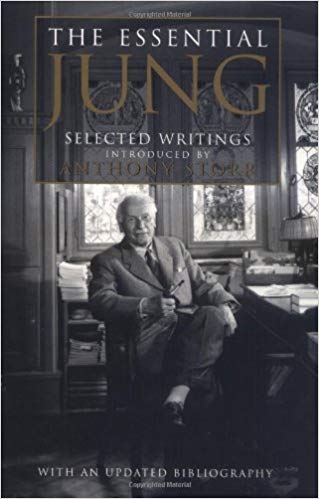
The Essential Jung
by Carl Jung
If you’re ready to dive deep into the depths of your subconscious, to meet your shadow and understand yourself, the works of Carl Jung are the place to start. Build the foundation from which to leap into the depths.

Jack E Othon
Jack E is the creator of Radically Enlightened, a blog dedicated to expanding global consciousness. Insta - https://www.instagram.com/jeothon/

